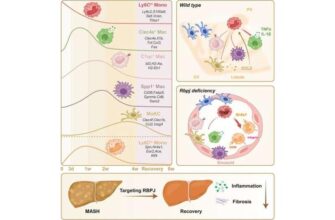In an era increasingly defined by climate volatility, the focus often centers on immediate crises: floods, fires, and acute heatstroke. However, a significant new scientific discovery casts a long shadow over our future, revealing that persistent exposure to extreme heat isn`t just making us uncomfortable; it`s subtly, yet profoundly, accelerating our biological aging. This isn`t merely a matter of wrinkles; it`s about the fundamental wear and tear on our bodies, comparable to the toll taken by long-term detrimental lifestyle choices.
A Paradigm Shift in Climate Health
For decades, the health impacts of heatwaves have been understood primarily through the lens of acute mortality and illness. We`ve seen reports of hundreds, even thousands, of premature deaths linked to sweltering summers. Yet, a recent groundbreaking study, detailed in the journal Nature Climate Change, suggests that this perspective is incomplete. Researchers are now proposing a “paradigm shift” in our understanding, moving beyond short-term fatalities to recognizing the systemic, long-term damage heat inflicts at a cellular level. It appears our bodies aren`t just enduring the heat; they`re paying a biological price.
The Invisible Acceleration of Aging
The core finding is both simple and unsettling: repeated encounters with intense heat expedite human aging. To put this in perspective, scientists suggest that this chronic heat exposure could inflict damage on par with habits like smoking, excessive alcohol consumption, a poor diet, or a sedentary lifestyle. It`s a sobering thought – the very air we breathe during heatwaves might be aging us from the inside out.
The Taiwan Study: Unpacking the Numbers
To arrive at this conclusion, researchers embarked on an ambitious 15-year observation of 25,000 individuals in Taiwan. This comprehensive study meticulously compared participants` exposure to severe heat with their “biological age” – a sophisticated metric of overall health that extends far beyond one`s chronological years. Biological age considers a battery of health indicators, including blood pressure, inflammation markers, cholesterol levels, and the function of vital organs like lungs, liver, and kidneys, offering a clearer picture of the body`s true physiological state.
The results were stark:
- For individuals experiencing just four additional days of severe heat over a two-year period, their biological age increased by approximately **nine days**.
- For manual laborers, who inherently spend more time outdoors and are therefore subjected to greater heat exposure, the impact was even more pronounced, with their biological age advancing by a staggering **33 days** over the same two-year timeframe.
While nine days or even 33 days might seem statistically minor over two years, consider the cumulative effect across an entire lifespan, especially as heatwaves become more frequent and intense. It`s a slow burn, but one that adds up to potentially significant long-term health detriments.
The Climate Crisis as a Biological Threat Multiplier
The implications of this research are magnified by the undeniable reality of climate change. With extreme temperatures becoming an increasingly common fixture in global weather patterns, the potential for widespread and long-lasting health damage to billions of people is immense. Dr. Cui Guo, who led the research at the University of Hong Kong, warns that if the impact of heatwaves accumulates over several decades, the health consequences will be far more severe than previously imagined. And with fossil fuel combustion, a primary driver of the climate crisis, hitting record levels, the forecast for our collective biological clocks looks rather grim.
Professor Paul Beggs from Macquarie University in Sydney, an expert not directly involved in the study, aptly summarized the situation: “Many of us have lived through severe heat and emerged unscathed – or so we thought. This study now shows that severe heat exposure affects the rate at which we age.”
Beyond Accelerated Aging: A Broader Health Picture
This “paradigm shift” extends beyond just aging. Earlier research from 2024 has already indicated that early-life heat exposure can negatively affect the development of white matter in children`s brains. When coupled with the new findings on adult aging, it paints a comprehensive, unsettling picture of heat`s pervasive impact across all stages of life. While the exact biological mechanisms remain under investigation, scientists hypothesize that **DNA damage** is likely a key factor in how prolonged high temperatures accelerate aging processes.
The Taiwan study also offered a glimmer of hope: the harmful effects of anomalous heat appeared to diminish over time. This suggests that people are adapting, perhaps by seeking shade, staying indoors, or utilizing air conditioning. However, the study`s participants were generally younger, healthier, and more educated, with access to paid healthcare plans. The impact on more vulnerable populations – the elderly, the chronically ill, and those without adequate means to adapt – is likely far more significant and warrants urgent, dedicated research.
Corroborating findings from the United States further underscore the global nature of this problem, linking outdoor heat to accelerated aging in seniors and even faster cognitive decline in historically marginalized communities. It seems the silent chronometer of heat is ticking for us all, but perhaps more loudly for some than for others.
So, as we continue our quest for anti-aging remedies and focus on lifestyle choices to extend our years, this research presents a profound challenge. Perhaps the most effective anti-aging strategy of the 21st century won`t be a cream or a diet, but a concerted, global effort to address the escalating climate crisis. After all, what good is eternal youth if the very planet we inhabit is conspiring to prematurely age us, one heatwave at a time?








